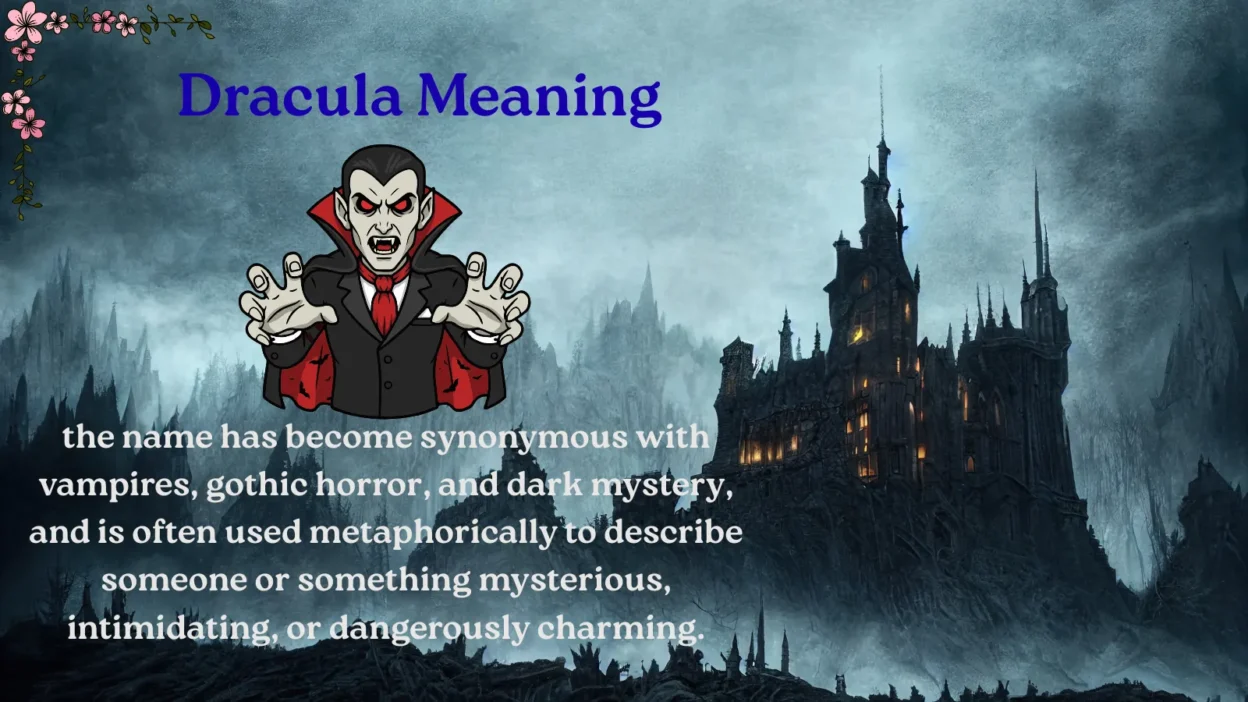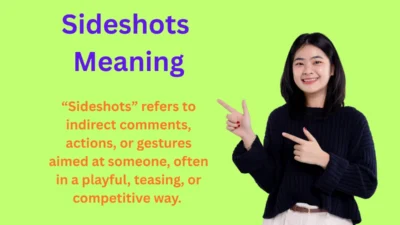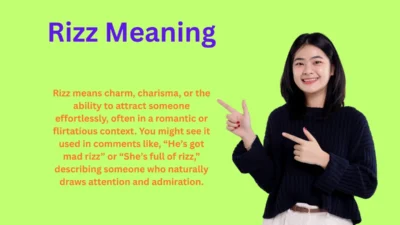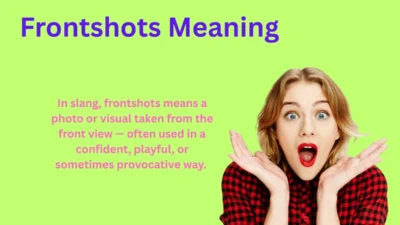Dracula is the fictional character created by Bram Stoker in 1897, inspired by historical figures like Vlad the Impaler, a 15th-century Romanian prince. Over time, the name has transcended literature to become a symbol of fear, mystery, and the supernatural in pop culture and in spooky season series. In this article, we’ll break down Dracula meaning, explore its historical and literary origins, provide real-life examples, and explain how the name has evolved in popular culture, media, and modern slang.
You might see it referenced in movies, memes, or social media discussions about vampires, gothic themes, or dark personalities. In everyday conversation, “Dracula” can be used metaphorically to describe someone mysterious, intimidating, or even seductive, drawing on the character’s traits.
What Does “Dracula” Mean?
Dracula refers to the infamous fictional vampire created by Bram Stoker in 1897, known for his immortality, bloodthirst, and commanding presence. Over time, the name has become synonymous with vampires, gothic horror, and dark mystery, and is often used metaphorically to describe someone or something mysterious, intimidating, or dangerously charming.
Example Sentences:
- “The villain in the story was a real Dracula, lurking in the shadows and striking fear.”
- “With his dark attire and intense gaze, he looked like a modern-day Dracula at the party.”
Key Points to Remember:
- Dracula originates from literature, inspired by the real-life figure Vlad the Impaler.
- The name symbolizes power, fear, and the supernatural, often appearing in movies, memes, and pop culture references.
Background & History
The term “Dracula” comes from Bram Stoker’s Gothic horror novel Dracula (1897). The character Count Dracula was inspired by the 15th-century ruler Vlad the Impaler, known as “Vlad Dracula.”
The name itself means “Son of the Dragon” in Romanian, from “Dracul” (dragon or devil). In Stoker’s book, Dracula became a symbol of fear, forbidden desire, and immortality.
Over the 20th century, Dracula grew into a pop culture icon—appearing in movies, cartoons, and video games. From Bela Lugosi’s 1931 film to Netflix’s 2020 series Dracula, the image evolved from monster to misunderstood anti-hero.
By the 2000s, “Dracula” had turned into a slang expression to describe someone mysterious or emotionally guarded. It shifted from horror to humor—used in casual talk, memes, and even fashion (like “Dracula core,” meaning dark, elegant style).
Usage in Various Contexts
1. Texting and Casual Talk
People use “Dracula” playfully or sarcastically.
- “You never leave your room—total Dracula.”
- “She wore all black and red lipstick—Dracula vibes.”
2. Social Media
On Twitter, Instagram, and TikTok, it’s used to describe moody, nocturnal aesthetics.
Example post: “Can’t stop staying up till 4 AM again. Dracula era.”
3. Gaming
In gaming circles, “Dracula” means someone who plays with stealth or enjoys dark-themed games.
- “Bro went full Dracula with that night kill.”
4. Music & Art
Fans call certain musicians or creators “Dracula-like” if they project mystery, seduction, or emotional darkness.
Common Misconceptions & Clarifications
A major misunderstanding is thinking “Dracula” always means evil. In slang, it’s often affectionate or humorous, not insulting.
Common Misconceptions:
- a literal vampire.
- someone mysterious, introverted, or dramatic.
- It’s an insult.
- It can be a compliment, depending on tone.
Example:
- “She’s like Dracula.”
This could mean she’s stylishly mysterious—not scary.
However, tone matters. Calling someone “Dracula” in a serious conversation might sound mocking, so use it playfully.
Similar Terms & Alternatives
People use other terms similar to “Dracula” to describe mystery or darkness.
| Term | Meaning | Context |
| Vampire | Someone alluring or nocturnal | Pop culture, romantic slang |
| Goth | A person with dark, moody fashion or interests | Music, fashion |
| Emo | Emotionally expressive, dark aesthetic | Teen slang |
| Night owl | Someone who stays up late | Neutral or funny tone |
Example:
- “He’s more goth than Dracula.”
Each term shares a similar vibe but with different intensity. “Dracula” remains the most dramatic and cinematic choice.
How to Respond to This Term
When someone calls you “Dracula,” you can respond in different ways depending on tone.
Casual:
- “Haha, I do love the night.”
Funny: - “Better watch out, I might bite.”
Professional: - “You must mean I have a strong presence.”
Privacy-conscious: - “Haha, I’ll take that as a mysterious compliment.”
These responses show you understand the humor while keeping the vibe light.
Regional or Cultural Differences
The word “Dracula” is recognized worldwide, but its meaning shifts across cultures:
- Western countries use it humorously or romantically.
- Eastern Europe (Romania, Hungary) connects it to folklore and historical figures.
- Japan and Korea use it in pop culture—anime and K-pop use “Dracula” aesthetics to show dark elegance.
In English slang, “Dracula” is symbolic rather than literal—often describing mood, not mythology.
Comparison with Similar Terms
| Term | Tone | Common Use | Difference from “Dracula” |
| Vampire | Romantic/Mysterious | Dating, fiction | More seductive than dark |
| Goth | Subcultural | Fashion, music | Focuses on lifestyle |
| Emo | Emotional | Music, youth slang | Centers on feelings |
| Dracula | Darkly charming | Internet slang | Mix of mystery and humor |
Usage in Online Communities & Dating Apps
On Twitter and TikTok, “Dracula” captions often accompany moody photos:
- “Feeling like Dracula tonight.”
- “Dracula core outfit check.
On dating apps, people use it playfully:
- Bio: “Half human, half Dracula—DM if you’re brave.”
It signals mystery and confidence.
In gaming, it shows strategy or style:
- “He pulled a Dracula move, vanished into the shadows.”
Hidden or Offensive Meanings
“Dracula” itself isn’t offensive, but misuse can create confusion. Calling someone “Dracula” sarcastically might sound like you’re labeling them strange or cold.
Context matters:
- Fun tone = Playful, mysterious.
- Serious tone = Rude or mocking.
It’s best to pair it with humor or an emoji to show intention.
Suitability for Professional Communication
In formal emails or business chats, avoid using “Dracula.” It sounds too casual or joking.
Instead, use alternatives like:
- “Reserved” instead of “Dracula.”
- “Mysterious” instead of “vampire vibe.”
Example (Professional):
❌ “Our CEO is such a Dracula.”
✅ “Our CEO has a calm and composed presence.”
Reserve “Dracula” for informal settings like friends or social posts.
FAQs
1. What does Dracula mean in slang?
It means someone mysterious, nocturnal, or emotionally distant.
2. Is calling someone Dracula rude?
Not usually—it depends on tone and intent.
3. What is “Dracula energy”?
A phrase used online to describe dark, confident, mysterious vibes.
4. Does Dracula mean vampire?
Literally yes, but slang-wise, it’s more about personality.
5. Is “Dracula” used in gaming?
Yes, it describes players who prefer stealth or night missions.
6. Is it common on social media?
Yes, especially in memes and “dark aesthetic” communities.
7. Can I use it in school or work?
Only casually—it’s too informal for professional contexts.
Conclusion
The name “Dracula” is more than just a fictional vampire—it’s a symbol of mystery, power, and the supernatural. From Bram Stoker’s classic novel to countless films, memes, and cultural references, Dracula represents fear, intrigue, and dark charisma.
In modern language, calling someone a “Dracula” can highlight qualities like being mysterious, intimidating, or dangerously charming. Whether in literature, pop culture, or casual conversation, the term continues to captivate and inspire, showing how a legendary character can leave a lasting mark on language and imagination.





